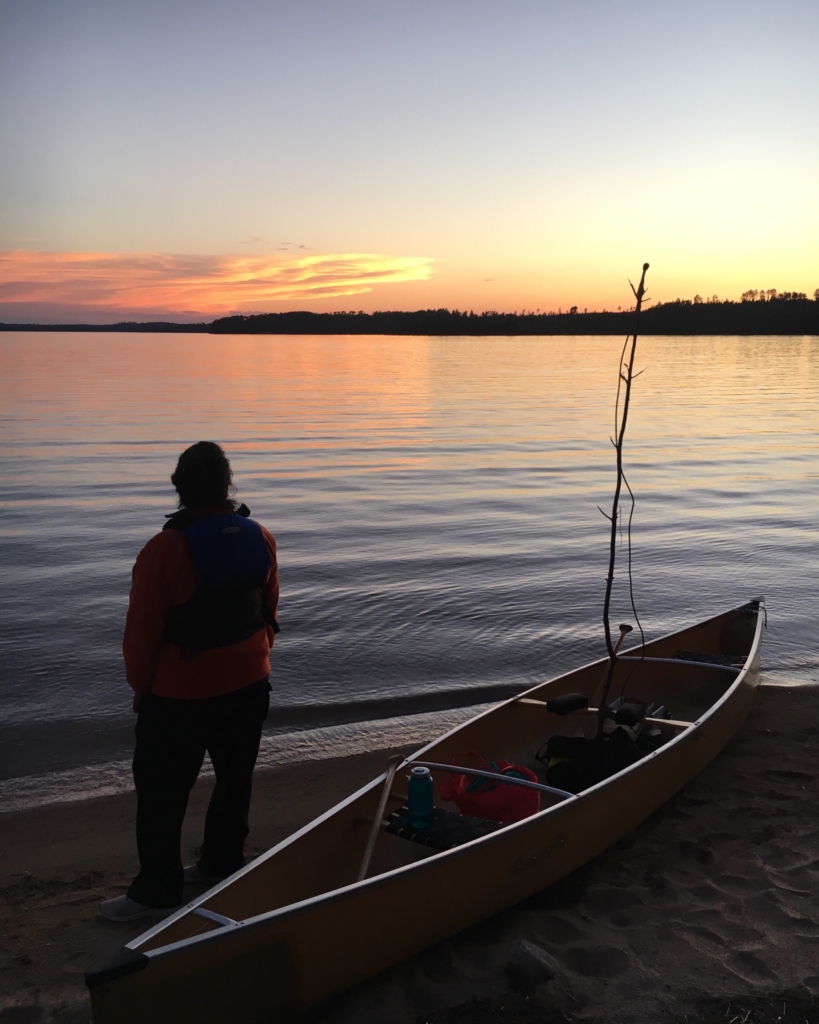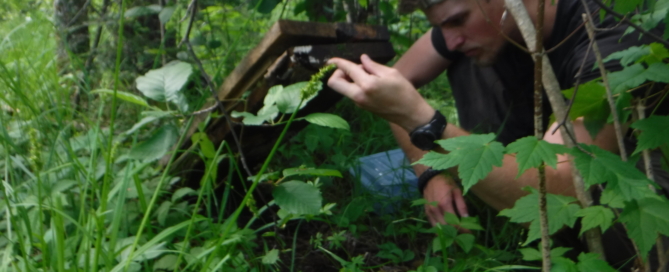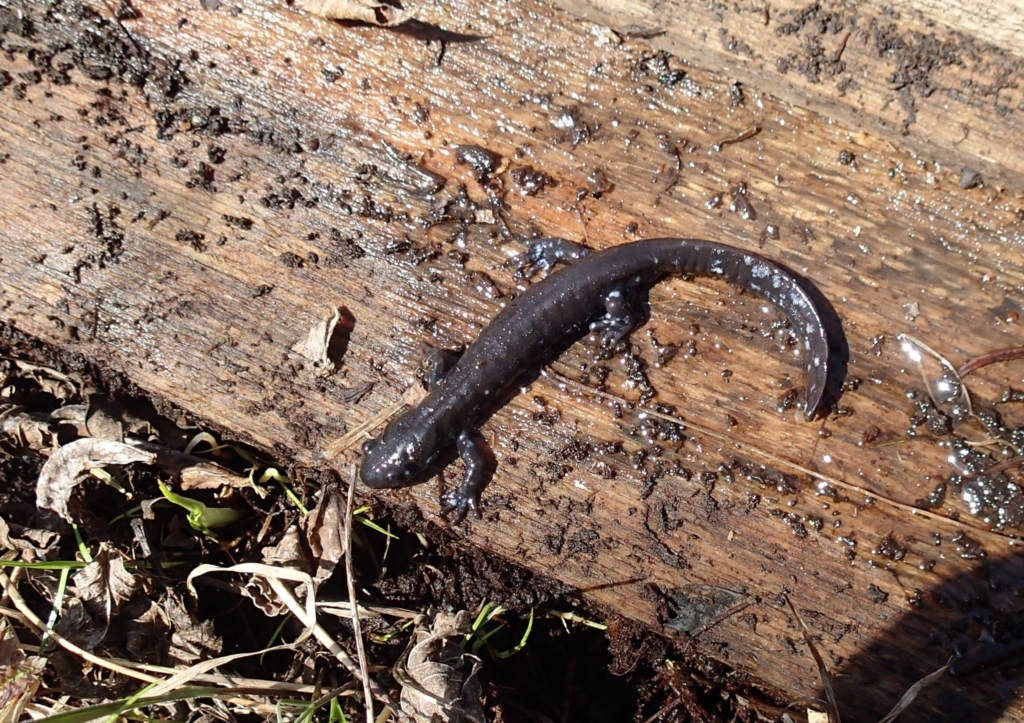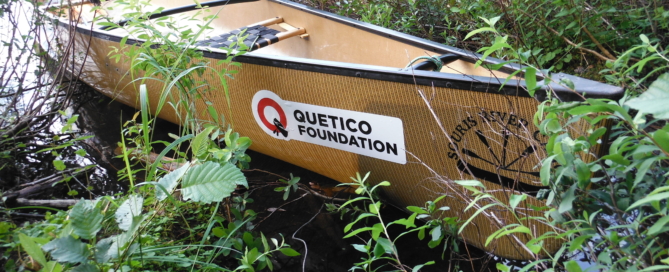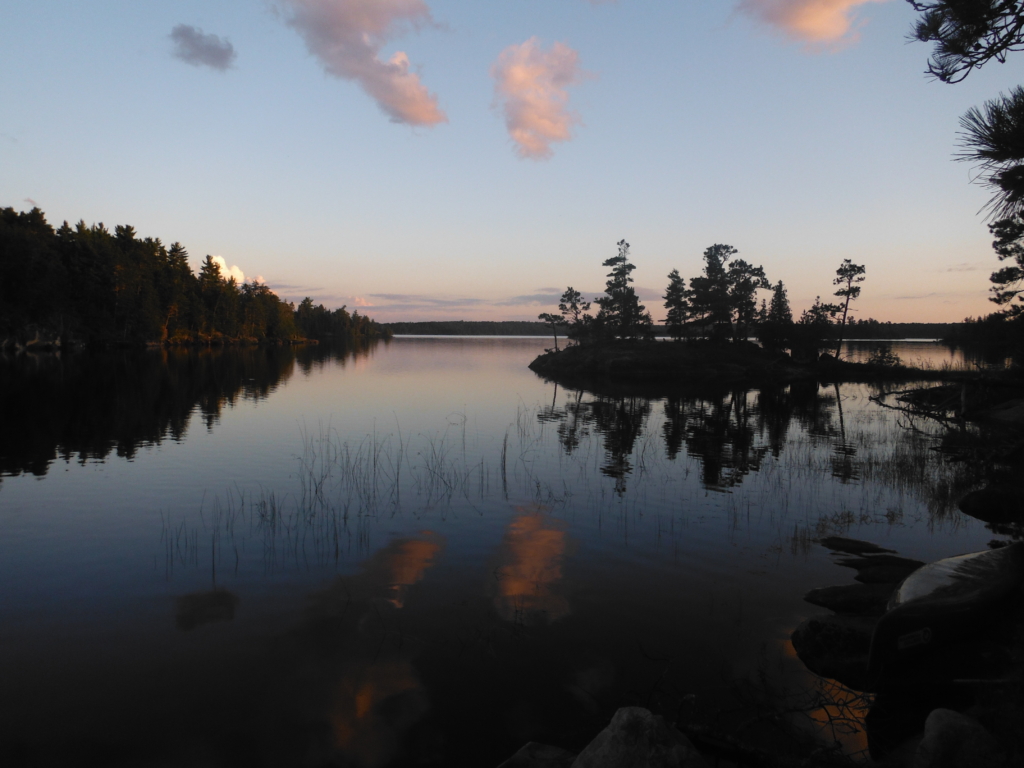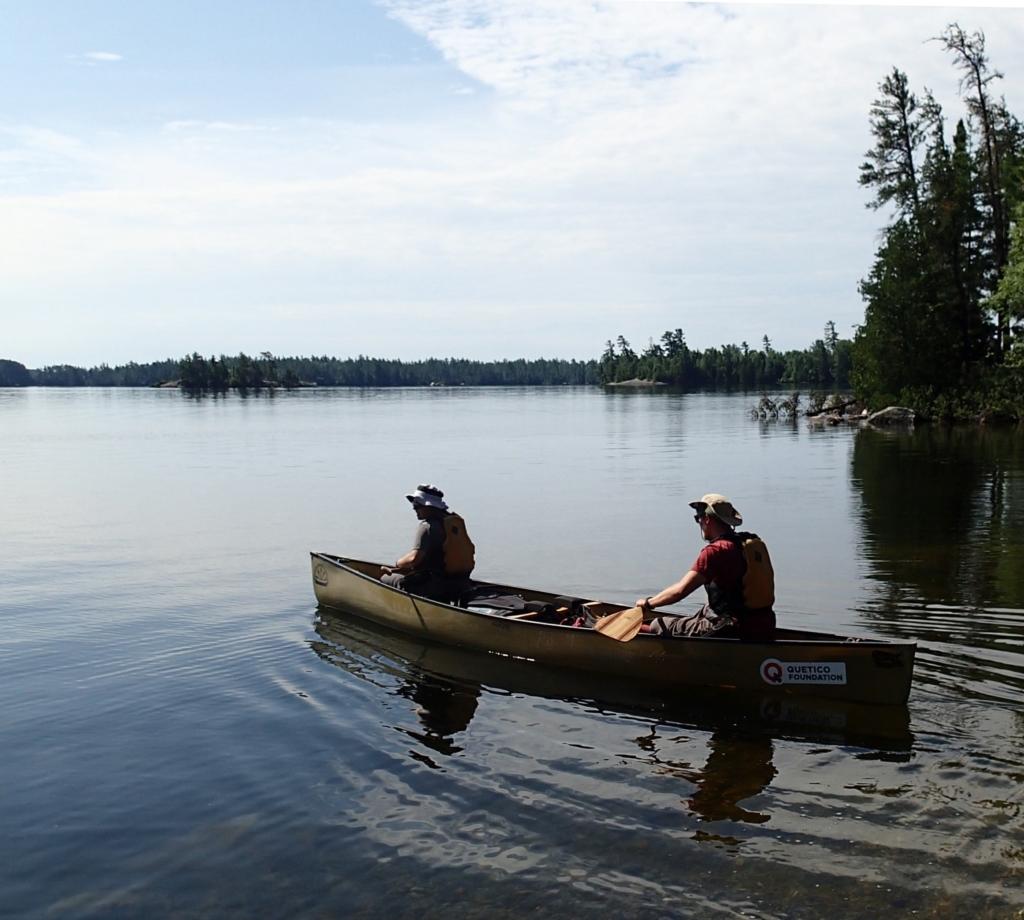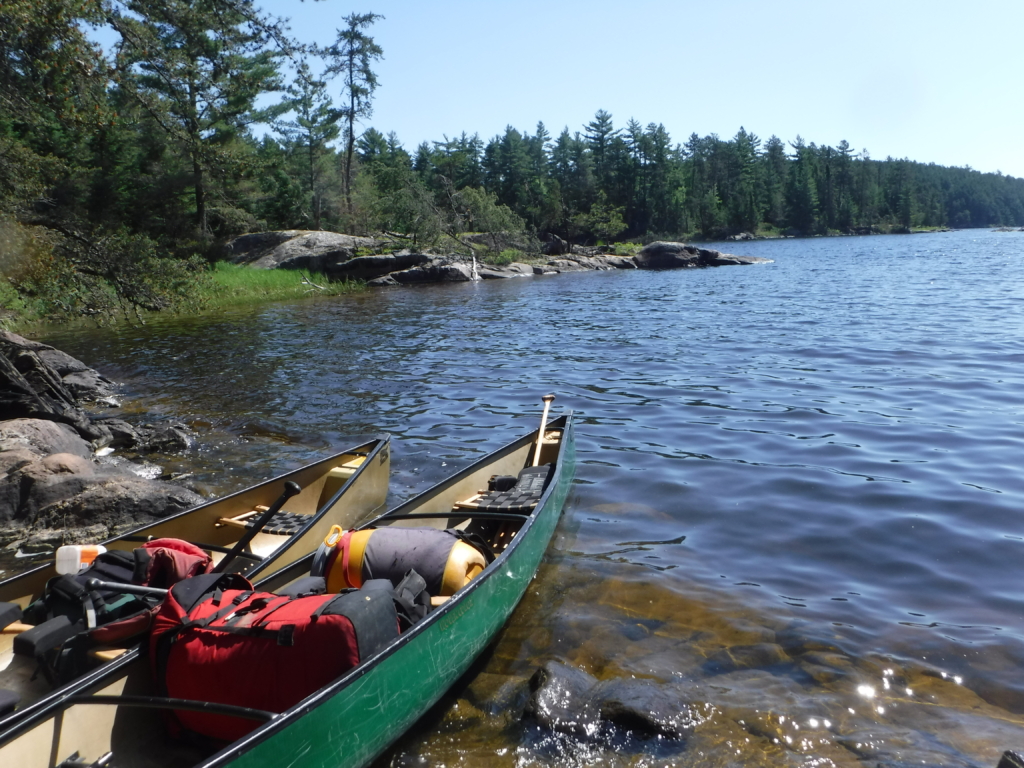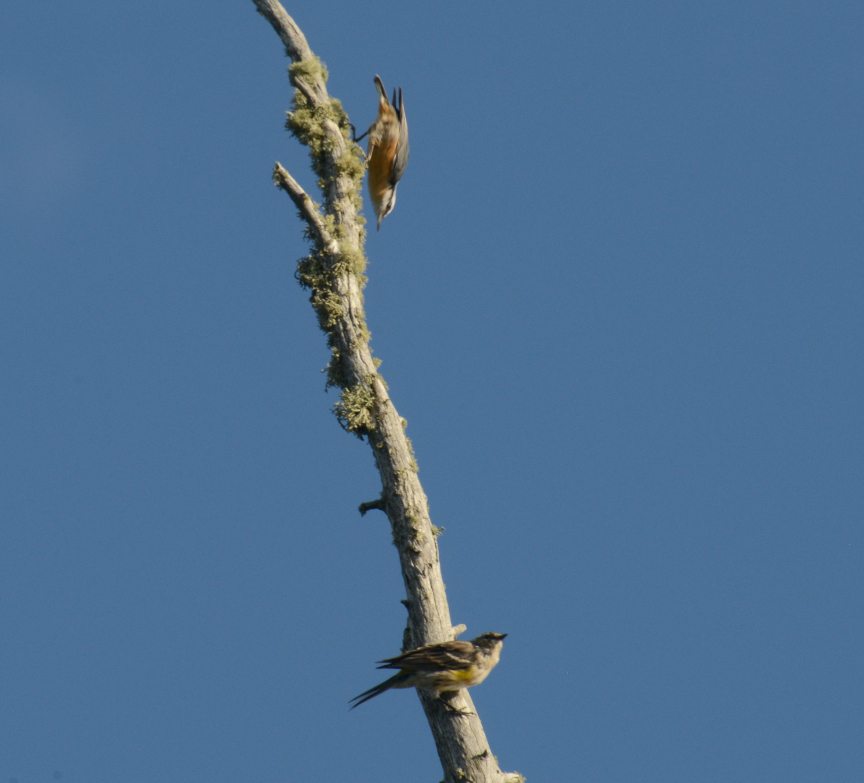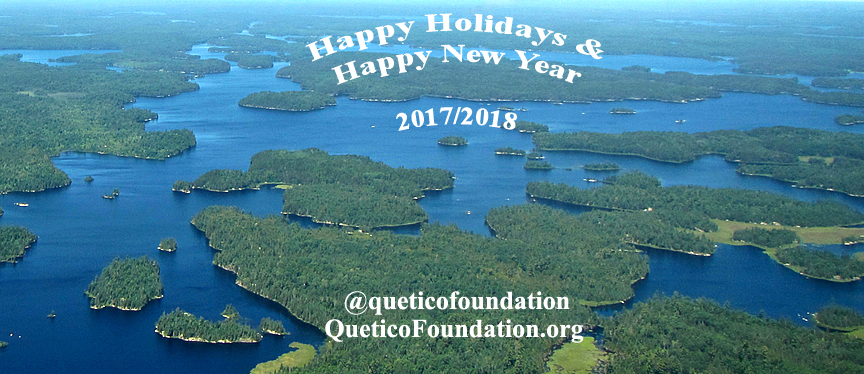Pre-Prescribed Burn Vegetation Monitoring in Quetico
Forest fires are recognized as a crucial force in the dynamic ecosystems of the boreal forest due to their revitalizing impacts on the landscape. Fire is also essential for certain plants and vegetation communities to grow and thrive – this is the case for Quetico’s iconic red and white pines. Red and white pine are fire-adapted species that require fire to produce the environmental conditions necessary for them to reproduce and germinate. Frequent fires in the boreal forest also increases spatial, structural, and biological diversity, and reduces forest fuel loads thus preventing large, intense burns.
Historic fire research excursion launch
Quetico Foundation biologist interns Jared Stachiw and Katie Tripp heading out on another research trip. On this trip they will be surveying red pine stands along the northwest portion of the Park for old stumps to collect to be dated to assess the number of historic surface fires (see Red pine, fire and people for more info). This information will be used in developing an updated Fire Management Plan for Quetico over the next few years.
Introducing songbird monitoring research 2018
We all know bird songs to be beautiful, but as it turns out they can also be quite useful. Forest birds are a valuable and convenient indicator of forest health. These birds are sensitive to changes in ecosystem health, and their association with forest habitat makes them ideal for detecting fluctuations in forest condition. Each species of songbird has a unique call which allows for relatively easy identification of the species of songbirds within an area. Since 2014, Quetico Foundation summer research staff have assisted Quetico Provincial Park in the monitoring of songbird calls and the analysis of songbird data. Wildlife Acoustic’s SongMeters are used to record audio data at dawn when songbirds are most vocal. Once this data is collected (at the end of the summer) a technician can determine which birds were heard within the forest nearest to the SongMeter, and over the course of several years of data collection can observe trends in songbird populations. This long-term monitoring effort will be used by Quetico Park to assist in making informed management decisions. The data will provide information on the impacts of fire and other disturbances on songbird communities, bird species at risk, and provide a better understanding of how fragmented landscapes impact songbird migration.
We are Canada – United by Canoe photos
We are Canada – United by Canoe photo album
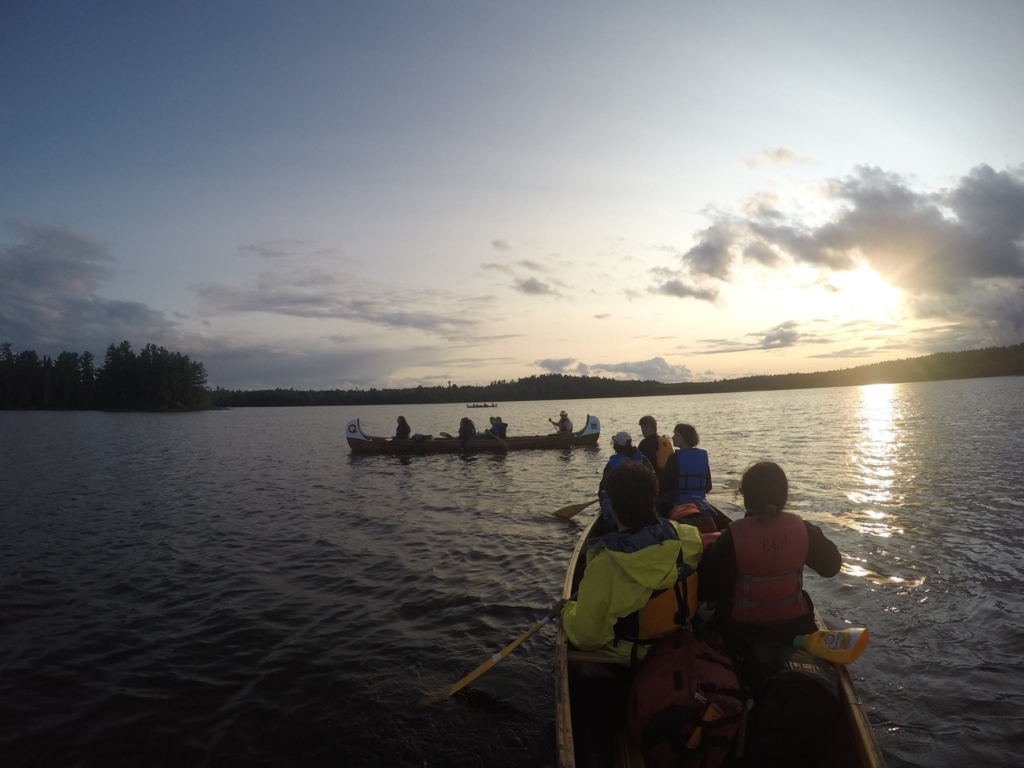 Learn more: https://queticofoundation.org/we-are-canada-united-by-canoe/
Learn more: https://queticofoundation.org/we-are-canada-united-by-canoe/
We are Canada…United by Canoe – Who is paddling for Canada’s future
A growing portfolio of participant bios

